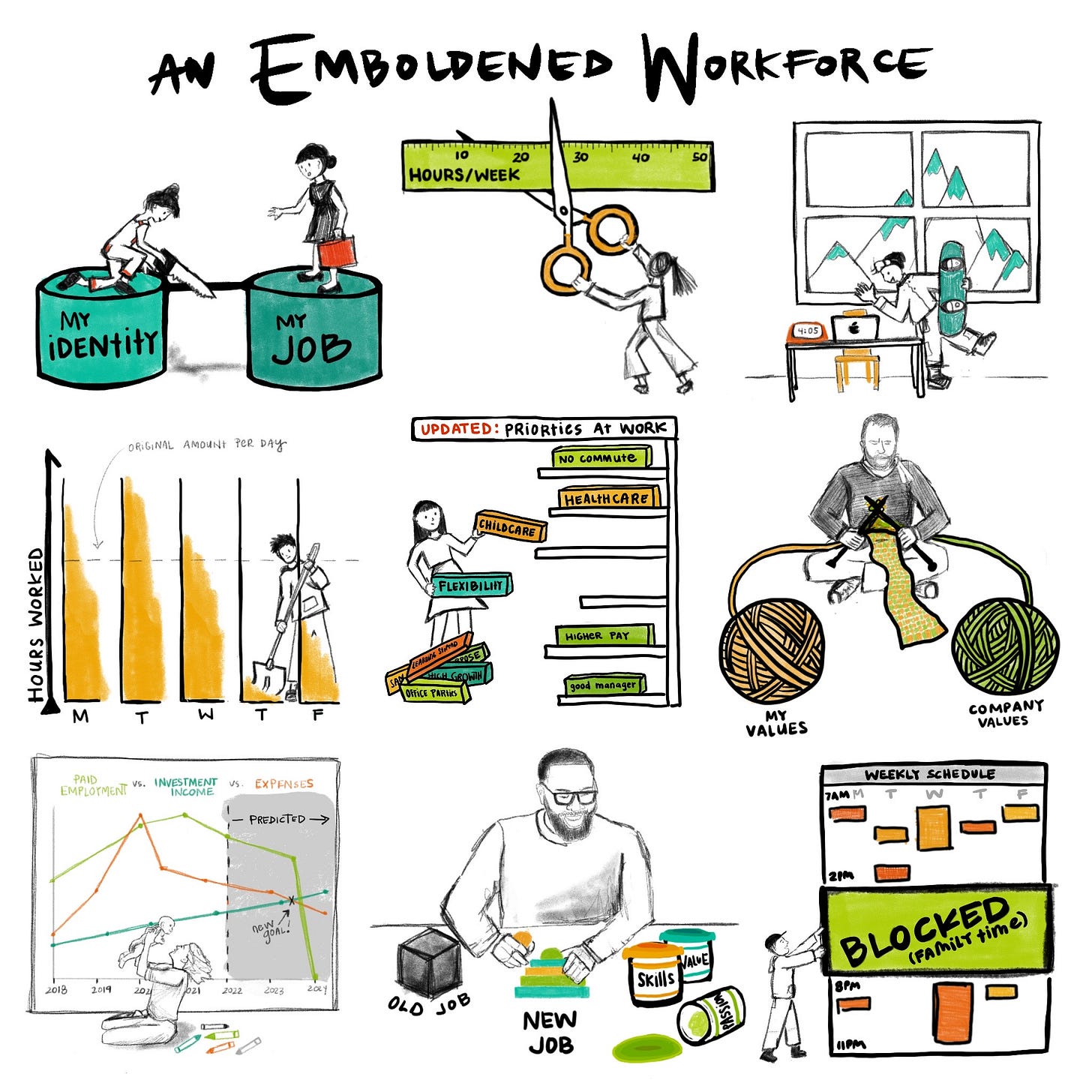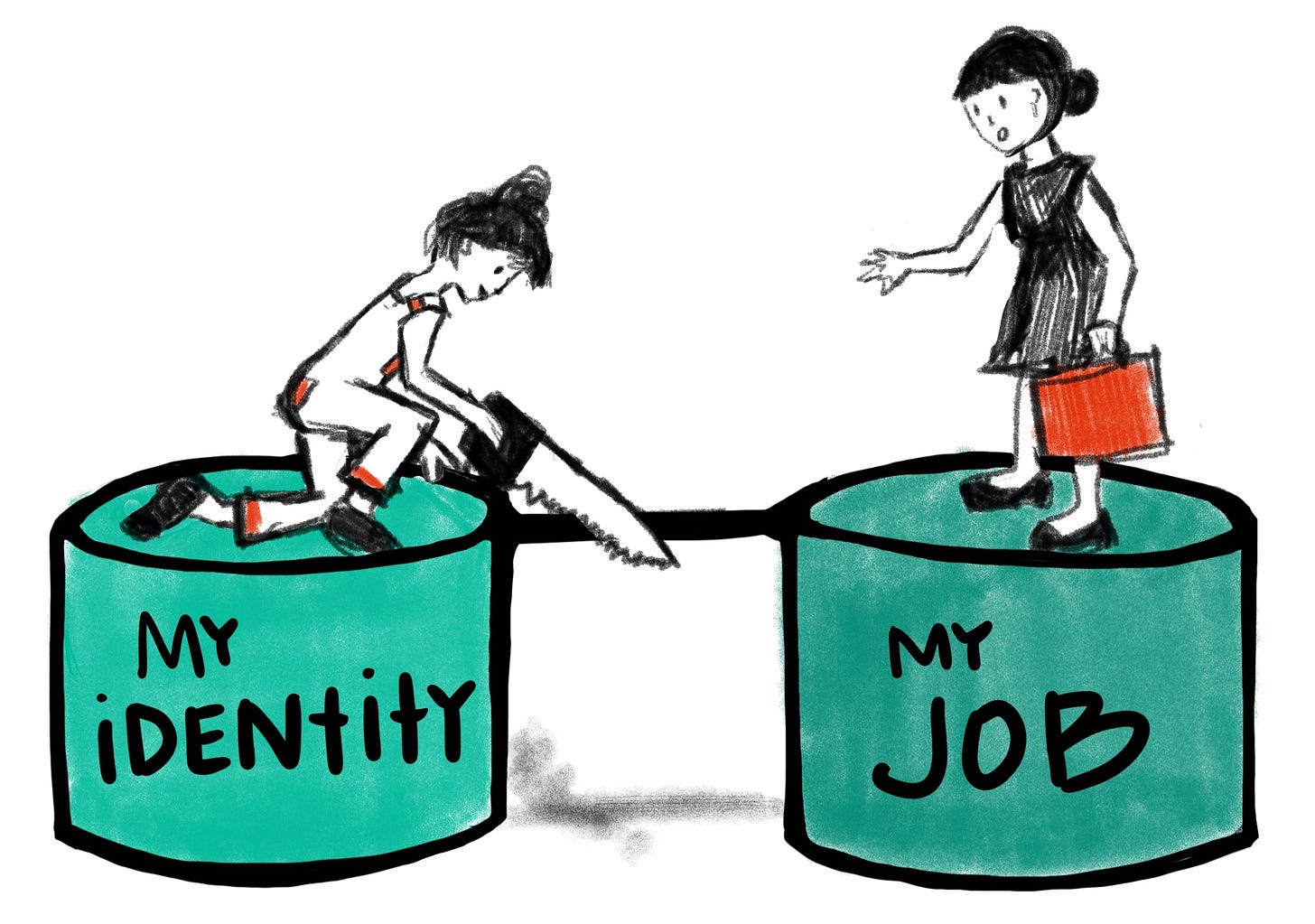An emboldened workforce
The contagious effect of reclaiming our lives
This is part of a series of illustrated essays about the decisive role of work in our lives and the opportunity we have right now to redesign the system that holds it all together.
In the last essay, we discussed the window of opportunity we have right now to reimagine and restructure the system we call work.
In this essay, we are going to zoom into the world of the worker.
Why are workers feeling so bold?
Economists, employers, and analysts have been scrambling to try and make sense of what is happening in ‘the labor market’ since the beginning of the year. It’s a record year for quitting, retiring, and striking - but why?
Why are people quitting? The year kicked off with experts predicting a Great Resignation was coming. Professor Anthony Klotz first coined the term and pointed to four converging trends that would lead to the mass exodus:
A backlog of people who didn’t quit their job due to the pandemic
Heightened levels of burnout
An increasing interest in remote work
“Pandemic epiphanies” aka a new perspective on life after lockdown
And it didn’t take long to see these predictions bear fruit, with record-breaking quits in April 2021. As companies responded to the first wave of quits with better opportunities, even more workers quit their jobs to take advantage of the abundance of new jobs on the market, accelerating “The Great Resignation” even farther. Another jobs report was released last week: quits in October 2021 remained as high as the previous two record-breaking months.
Why are people retiring? What followed next was a Great Retirement, or the “Silver Tsunami” (I love it), with boomers retiring earlier than planned. The pandemic was a double edged sword for this older group, both more vulnerable to the virus but also more likely to be chosen in layoffs due to their seniority and higher pay. This time made them think more carefully about how they wanted to spend the rest of their years, with many ultimately deciding to retire and leaving the workforce.
Why are people striking? Then in the fall came Striketober, where more than 100,000 U.S. workers participated in or prepared for strikes, one of the largest organized labor increases in the twenty first century. Important battles are being fought across healthcare, manufacturing, retail, and just this past week, Starbucks workers in one Buffalo, NY store voted in favor of unionizing, becoming the first Starbucks in the US to do so. This Labor Action Tracker by Cornell University shows the breadth of organized labor action across the country.
Sometimes strikes and union organizing victories can be very contagious… We saw this in 2018 with teacher strikes. They began in West Virginia; they quickly spread to North Carolina, Arizona, Oklahoma, and other states… [The Starbucks union] could inspire a lot of workers across the country in a low-unionized sector to fight for union rights.
- Johnnie Kallas, PhD candidate at Cornell’s Industrial and Labor Relations school, which hosted a panel ahead of the Starbucks union vote Thursday (Vox article)
Raising awareness and standing in solidarity with these workers can have a profound rippling effect across all industries. Calling these strikes simply an ask for better wages, benefits, and working conditions falls short of explaining this moment. Those have long been the fight of organized labor. What’s different is that the worker has more power right now. This power came from the anger and exhaustion of being overworked and underpaid. It ignited an internal fire, and with it we forged a new vision for our lives.
What is the common thread?
The pandemic has pushed us into extreme physical, mental, and social situations: total solitude or not a moment to oneself, complete burnout or unprecedented free time, locked inside our homes or on the frontline of a global health crisis. We see the world and our lives with new eyes and a collectively lived experience that life is too short to spend it being paid too little to do something doesn’t matter to us.
Call it pandemic epiphanies. Call it burnout. Call it reflecting on what matters to us. But I’m going to call it collectively reclaiming our lives.
Reclaiming Our Priorities
After living through 2020 and 2021, many of us have a deeper understanding of what actually matters to us. With a clearer set of priorities, we are also able to shift our ideas of what we are willing to trade for a paycheck.

The last two years at work had some positives (less time in traffic) and many negatives (isolation, lack of childcare). We want work to fit into our lives, not the other way around. Remote work exploded during the pandemic out of necessity and shifted our ideas on what our work lives could look like.

One paper published from Stanford University explains how only 4% of employees worked from home in 2018, but by May 2020, it grew to about half of the workforce. The authors detail five reasons why work from home will stick:
Diminished stigma
Better-than-expected experiences working from home
Investments in physical and human capital enabling working from home
Reluctance to return to pre-pandemic activities
Innovation supporting working from home
Another movement on the rise is working towards eliminating dependence on a paycheck altogether. The FIRE (Financial Independence Retire Early) community has been around for a decade or so and their ideas are gaining more traction. Rather than accumulating money just for the sake of it, the FIRE community typically has an exact number they are looking for, a definition of “enough”, where they can live off their investment income instead of having to rely on a job or paycheck.
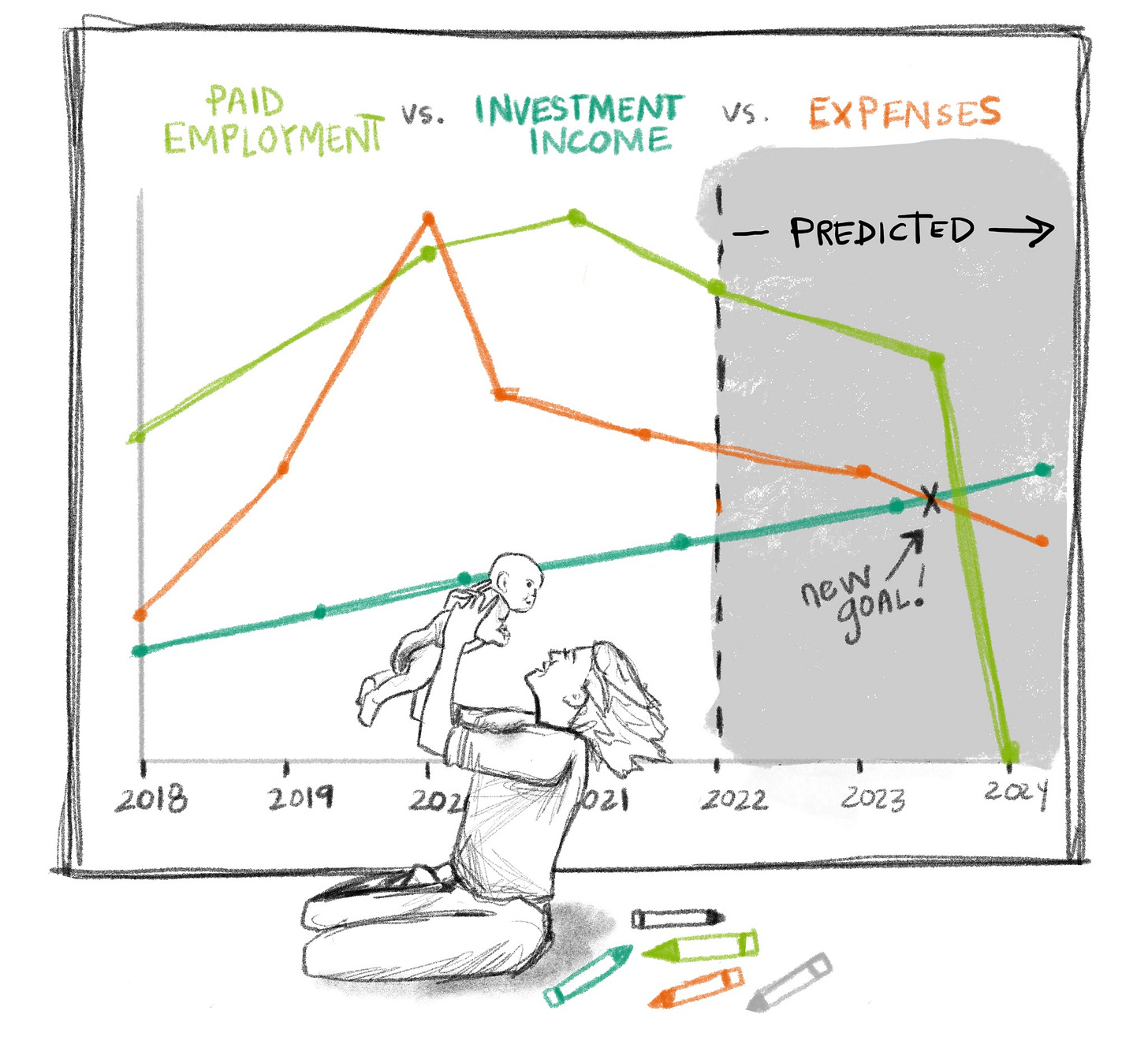
Valuing self-reliance, DIY skills, community support, multiple/creative income streams, and devaluing consumption, retiring early isn’t about lounging around, or even not working. It’s about freedom to spend that time to do absolutely anything you want: write a book, start a non-profit, learn a foreign language, coach a kids’ sports team, or even choosing to still have a job (not because you need it, because you like it).
Reclaiming Our Time
As we talked about in the last essay, the purpose of paid employment is to trade our time for a price. How much of our time we had to trade was typically set by others, or maybe the “40 hour work week”, not by us. But people are aggressively challenging the rigid schedules that our jobs have forced us into.
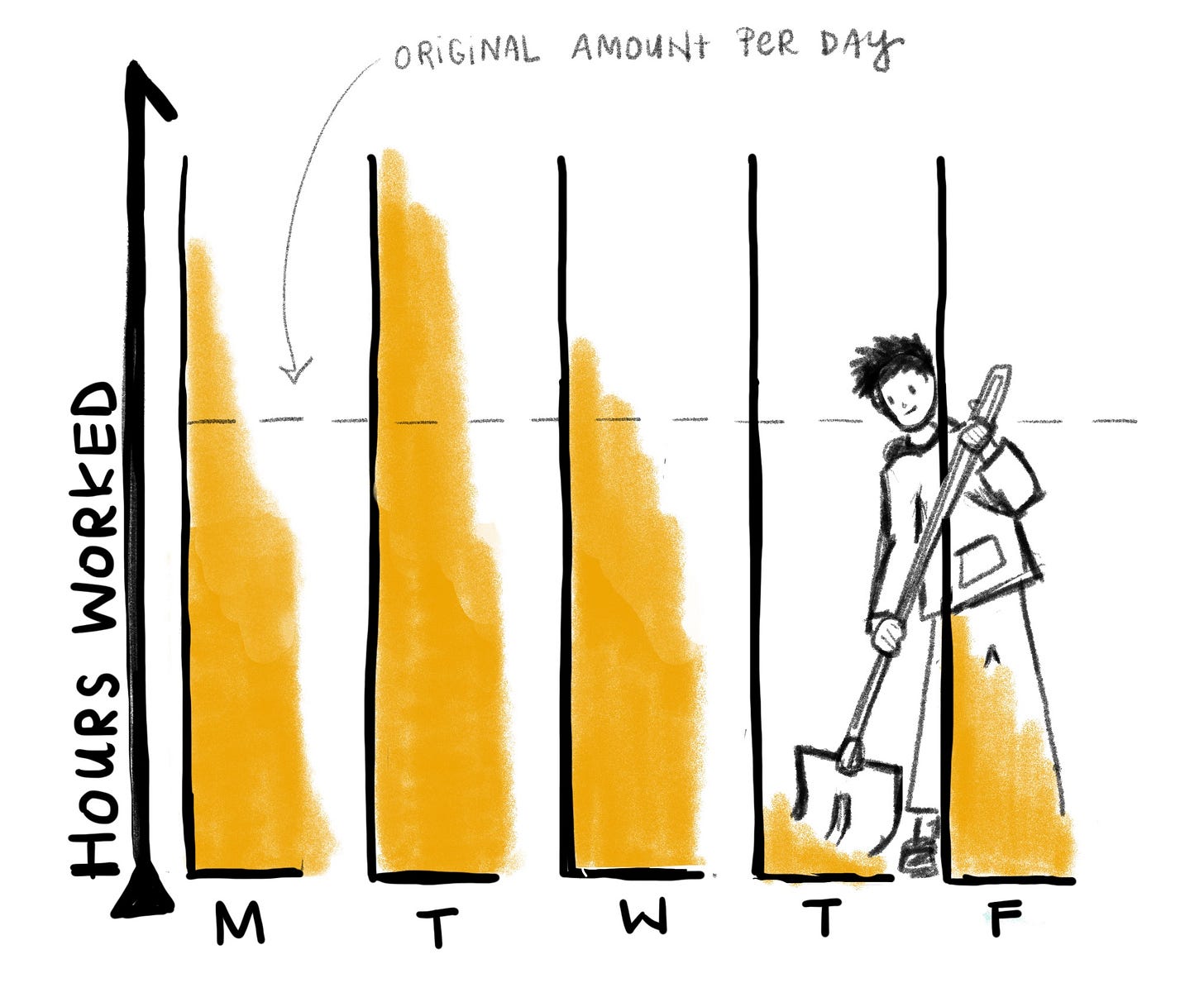
We want more control of our schedules. We want to decide when and how much time we are willing to give up. Some might want to protect certain days, certain time slots, shorten the work-week altogether, even take an extended sabbatical.
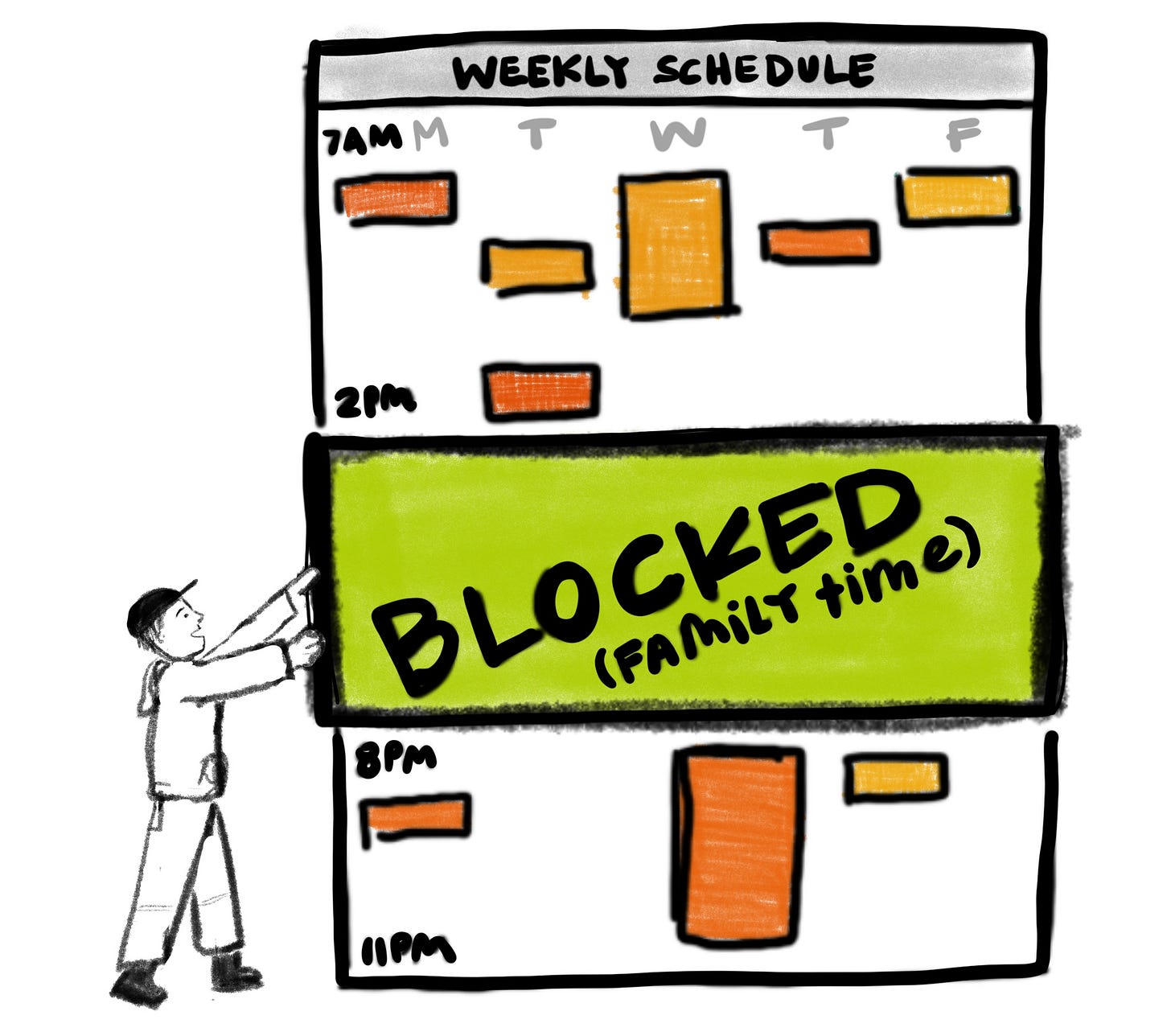
We don’t want to be always on. We want our boundaries back, as the digital world has corroded our physical boundaries. Millennials are rethinking the hustle culture that led to generational burnout. The New York Times is calling the change in heart the YOLO Economy (which, as a millennial, makes me cringe). One quote from the article particularly resonated: “We’ve all had a year to evaluate if the life we’re living is the one we want to be living,” said Christina Wallace, a senior lecturer at Harvard Business School. “Especially for younger people who have been told to work hard, pay off your loans and someday you’ll get to enjoy your life, a lot of them are questioning that equation. What if they want to be happy right now?”
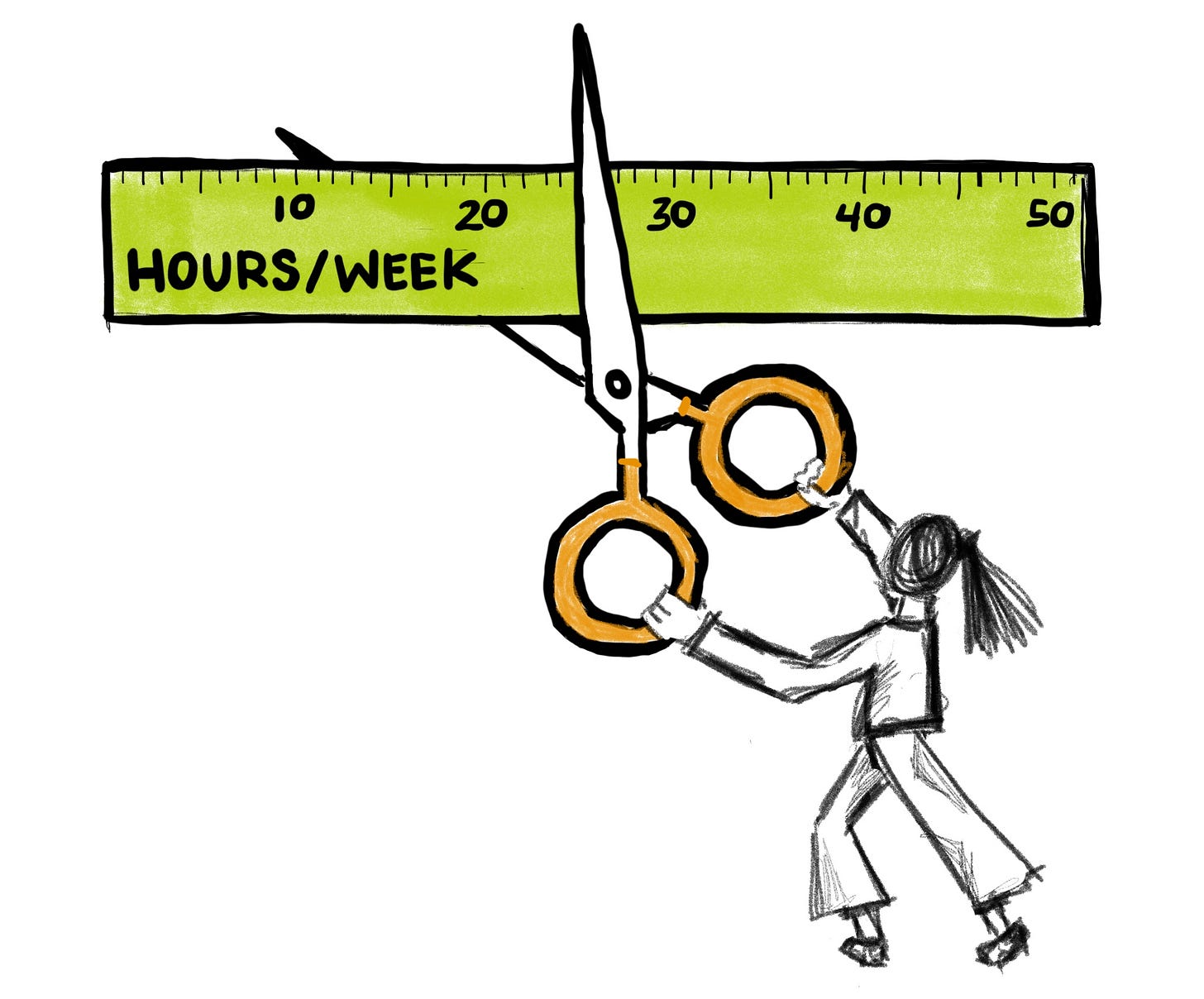
Reclaiming Our Identity
When lockdowns began, the flurry of activities that we had to keep us distracted, busy, and moving had vanished. Our jobs were nearly the totality of what occupied our time. While our inboxes were flooded with new strategies to deal with stuff going on in our outer worlds: prevent the spread, mitigate Zoom fatigue, plan remote team “engagement”, and so on, there was something more subtle and more powerful happening in our inner worlds. As the noise decreased, we started to ask deeper questions about ourselves and the things that bring us fulfillment. These “pandemic epiphanies” spurred creative ideas for rethinking the kind of roles, even industries, we are in, so our jobs better represent our talents and passions.
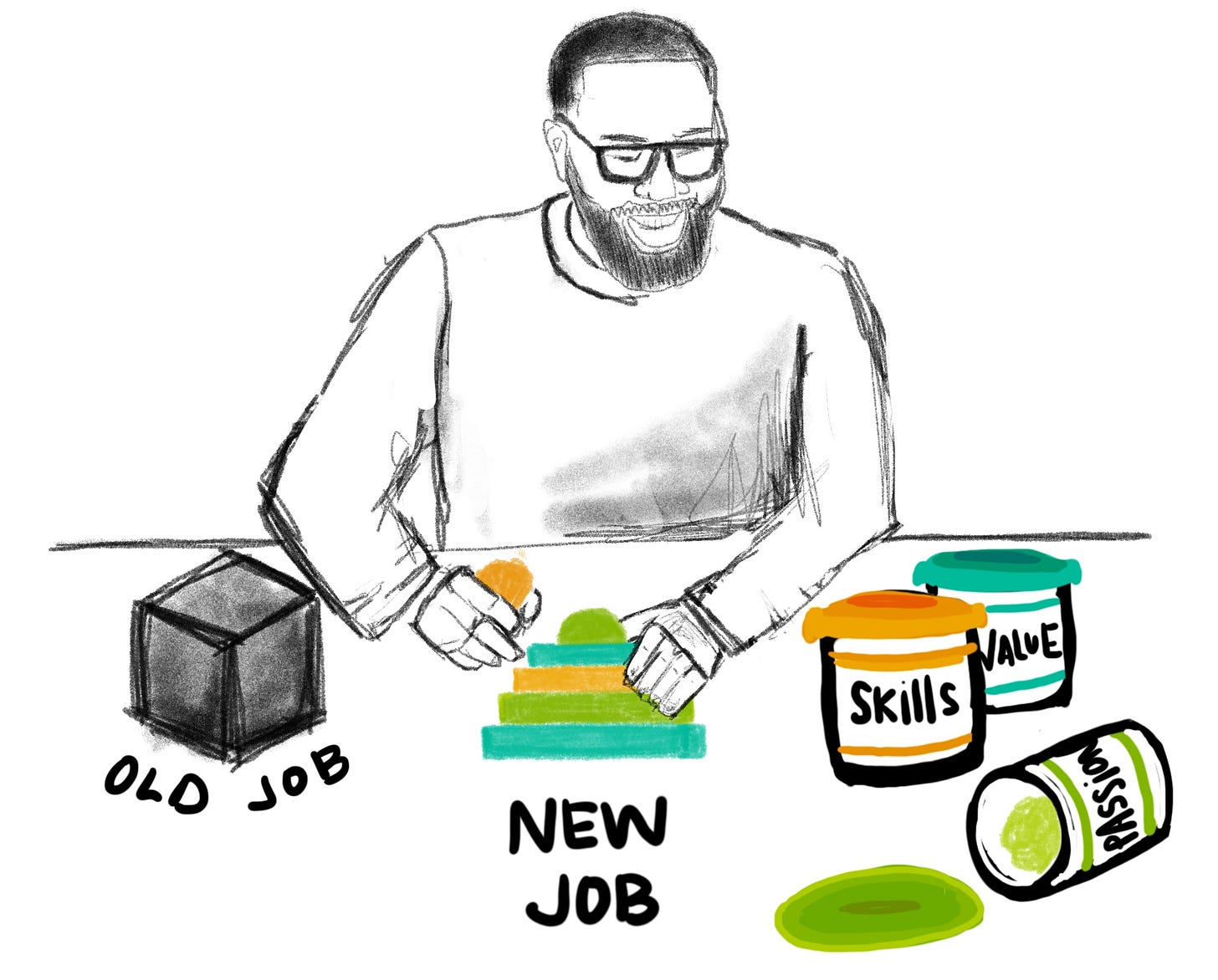
Some of us are using this opportunity to make a political statement about who we are, what we stand for, and what we will not tolerate. Declaring our values, we can get more involved in our companies responses to racial justice, climate change, disinformation, and more. Some of us might choose to interweave our purpose and values with the company we work for.
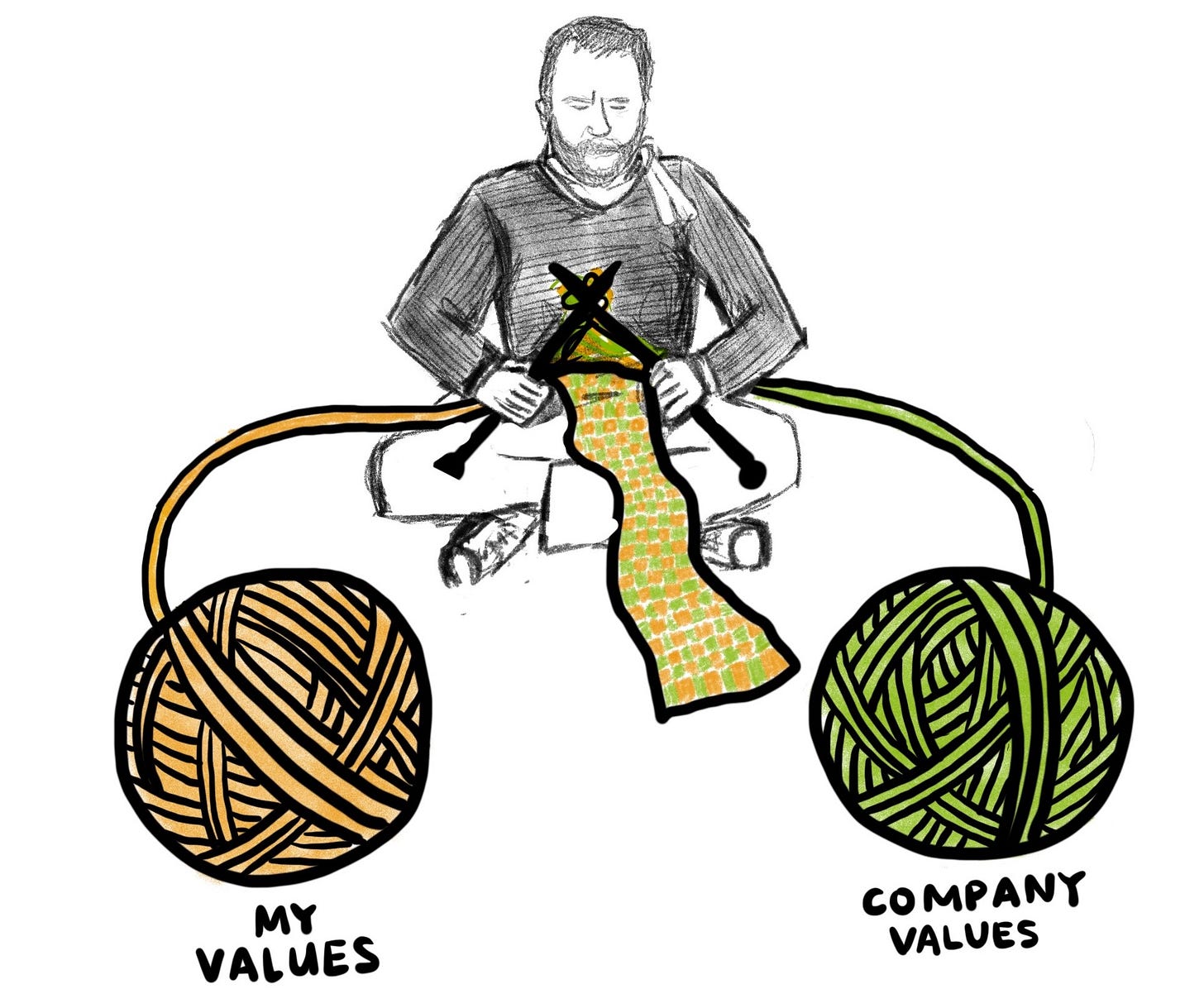
On the other hand, this might actually cause some of us problems in the long run. Humans are not one dimensional. Allowing ourselves to be singularly defined by our job can leave us feeling empty if we depend on that job for our life’s purpose and lost if that job should disappear. A strong case for this is made in a recent episode from The Ezra Klein Show titled “The Case Against Loving Your Job”. Pair it with a new article in The Atlantic from one of my favorite Substack writers Anne Helen Peterson, titled How to Care Less About Work.
It’s an act of resilience and resistance to declare that we are more than just our job. It’s a highly personal choice of how much to tie one’s identity to their work, but it’s worth noting the dangers of the American inclination to define our worth by what we do for work.
How can you add fuel to the fire?
Be a part of the collective power source. Each additional person who decides they too want to reclaim their lives gives everyone else more power. Take some time right now to clarify your life priorities, your ideal day, and your individual stance on work. Use the questions below as guides. Many were pulled, inspired, adapted from “Money Talks” in Your Money or Your Life1, a book I am indebted to and highly recommend.
Questions to reflect on:
Reclaim Your Priorities: What makes you happy? How much money do you need to be happy? What’s most important to you? Why? Are you currently living in alignment with these priorities? What could you change to live in better alignment?
Reclaim Your Time: How do you spend your days? Describe your ideal day. If you didn’t have to work for a living, what would you do with your time? If you could take a year off, how would you spend it? Is there something you could change or ask for in your current job?
Reclaim Your Identity: What values will you never compromise? What’s your life’s work? What do you want your legacy to be? What do you like most about yourself? How much of your identity is currently tied to your work?
Lastly, what does work mean to you? What’s your ideal vision for work?
Write ideas that come to you down in a journal. Grab coffee with a friend and talk it over. Throw your most bold intentions in the comments. Send hesitations over an email. Those willing to share their crazy ideas will surely be rewarded with more ideas and support from others.
Because this shit is contagious.
Please note that Your Money or Your Life is an affiliate link. This means that if a reader buys the book through the link in this essay, Figures will get a small cut. This helps support all the work that goes into these posts! I promise to never recommend anything I don’t endorse. This was one of my favorite books I read in 2021. I only wish I had read it sooner.

